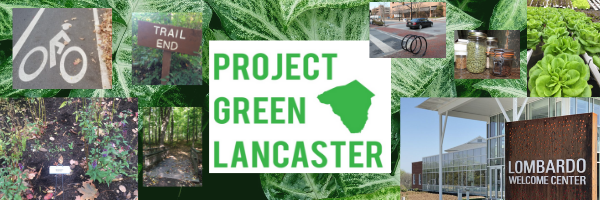Composting is a great way to help the environment. Learn what composting is and how easy it is to make one at home.
What is composting?
Composting is a natural process that turns your kitchen waste into food for your garden. It requires three basic ingredients.
- Browns- dead leaves, branches, and twigs.
- Greens- grass clippings, vegetables, fruit, and coffee grounds
- Water
Why is it beneficial?
When you throw away food after it goes to a landfill it gives off methane which is a greenhouse gas that is responsible for climate change. Using a compost bin can decrease that gas. It can also reduce the use of chemicals as fertilizers because it simply can be used as a fertilizer! According to the EPA, compost can capture and eliminate 99.6 percent of volatile organic compounds, or VOCs, from the air. These vapors and gases can have a harmful impact on your health. It also benefits your garden by improving it’s soil.
How do you make them?
Here is one way to make an affordable, simple bin for your backyard:
- You can recycle or buy a plastic bin that is at least 24 inches tall
- Drill about 8-10 holes in the bottom of the bin
- Place dry leaves at the bottom filling it 1/8 inch full.
- Place dirt on top of the leaves to fill it about 1/2 full.
- Now you can place your food scrap or paper products in the bin
- Then you want to stir your compost making sure your scraps are covered with the dirt
- Spray with lukewarm water until its moist but not soaking wet.
- Drill the same amount of holes in the lid
- Place your bin anywhere you’d like outside but not in full sunlight (you don’t want it to dry out.
Tips
- Don’t throw away your kitchen scraps, the best materials to add are eggshells, coffee grounds, fruit and vegetable peels
- Keep your compost aerated
- Keep it moist, don’t keep it too dry or too wet.
- Don’t add too much of one material
According to the Mother Nature Network here are 12 things you should never compost:
- Bread products
- Cooking oil
- Diseased plants
- Heavily coated or printed paper
- Human or animal feces
- Meat products
- Milk products
- Rice
- Sawdust
- Used personal products
- Walnuts
About LCSWMA
The Lancaster Solid Waste Management Authority (LCSWMA) and the Penn State Master Gardeners of Lancaster County are coming together to host the compost workshops. LCSWMA is in charge of over one million tons of solid waste each year. Their visions says “Rethinking Waste for a Sustainable Future” and they say they work hard to transform waste into a resource to make great things happen in our community. For example, they have the ability to power thousands of homes and businesses by turning trash into renewable energy.
LCSWMA supporting communities
- Environment: help build recreational trails for Lancaster County so residents can enjoy the open space and the beauty of our environment.
- Economy: they support organizations that help with the growth of the economy.
- Culture: they support events like the Long’s Park Summer Concert Series, Harrisburg Mural Festival, etc.
Prince Street Cafe
Prince Street Cafe in Lancaster is working with Oregon Diary Organic’s to turn compostable items from the cafe into high quality compost for home gardeners, landscapers, park and athletic field managers, and organic farmers. Prince Street Cafe says that being sustainable and limiting waste we contribute to the world is part of our mission.
What is Oregon Dairy?
They are a composting facility that takes manure from local farms and turns material from local landfills into high quality compost for home gardeners. They prevent polluted runoff from reaching Lancaster’s streams and rivers and improve soil health without chemical fertilizers. Oregon Dairy Organics sells 12,000-14,000 cubic yards of compost a year which is 6,000 – 7,000 tons of compost. It takes 3 months to change raw product (cow manure, horse manure, food waste) to ready to use compost.
Compost Park in Manheim
This composting park accepts garden residues, shrubbery and tree pruning, sod, leaves and grass for composting.
Hours:
- April 1st through May 31st – open every day, excluding Easter Sunday, Memorial Day Holiday – 7:00 a.m. to 7:00 p.m.
- June 1st through August 31st – open every day, excluding July 4th Holiday – 7:00 a.m. to 7:00 p.m.
- September 1st through October 31st – open every day, excluding Labor Day Holiday – 7:00 a.m. to 7:00 p.m.
- November 1st through November 30th – open every day, excluding Thanksgiving Day – 7:00 a.m. to 5:00 p.m.
- December 1st through December 23rd – open every day – 8:00 a.m. to 5:00 p.m.
References
For more tips about composting visit http://compostguide.com/composting-tips/
“FREE Home Compost Workshops.” LCSWMA, www.lcswma.org/news-blog/free-home-compost-workshops-4/.
“Why Compost?” Why Compost? | Recycle Now, www.recyclenow.com/reduce-waste/composting/why-compost.
“Reducing the Impact of Wasted Food by Feeding the Soil and Composting.” EPA, Environmental Protection Agency, 2 Aug. 2018, www.epa.gov/sustainable-management-food/reducing-impact-wasted-food-feeding-soil-and-composting#benefits.
Hunt, Kristin. “What Is Composting?” Green Matters, Green Matters, 7 Dec. 2018, www.greenmatters.com/food/2018/12/07/ZboPlt/what-is-composting.“Organics/Compost Facility
The Farmstead.” Oregon Dairy, www.oregondairy.com/the-farmstead/compost-facility.“Compost.”
Prince Street Cafe, princestreetcafe.com/pages/compost.



